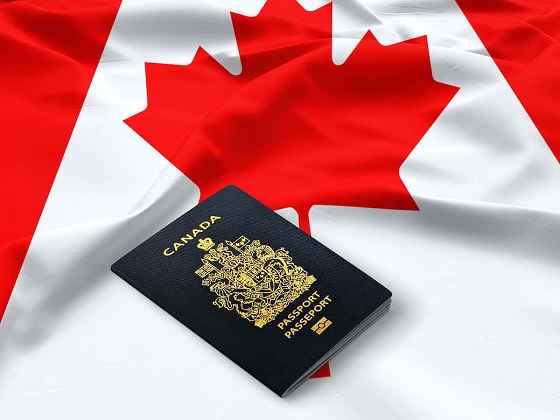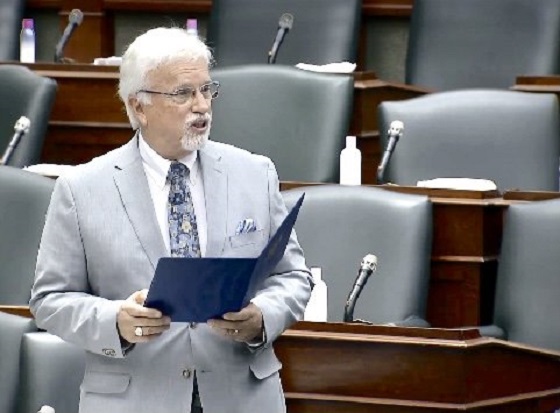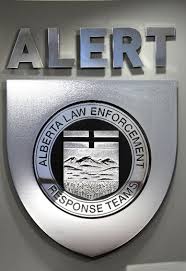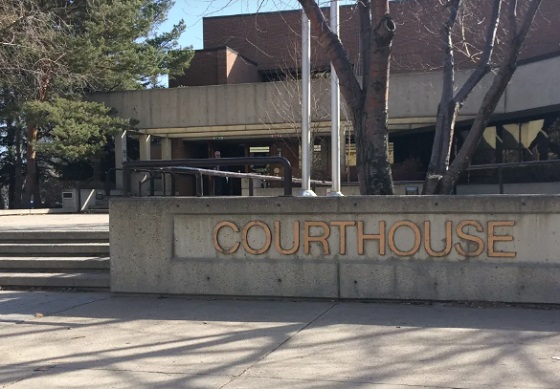Alberta
50 of 67 new COVID cases are in Calgary. Alberta COVID-19 update for March 26

From the Province of Alberta
Update 13: COVID-19 pandemic in Alberta (March 26 at 4:30 p.m.)
Sixty-seven additional cases of COVID-19 have been confirmed, bringing the total number of cases in the province to 486.
Latest updates
- Cases have been identified in all zones across the province:
- 300 cases in the Calgary zone
- 111 cases in the Edmonton zone
- 26 cases in the North zone
- 37 cases in the Central zone
- 12 cases in the South zone
- Of these cases, 21 are currently hospitalized, including 10 admitted to intensive care units (ICU).
- In total, there have been 28 hospitalizations, with 11 admissions to an ICU.
- Two deaths have been reported.
- Up to 34 of the 486 cases may be due to community transmission.
- A COVID-19 outbreak was confirmed March 24 at the Nelson Home, a Calgary group home for persons with developmental disabilities. Two care workers and a resident have tested positive for COVID-19, and two other residents have been tested with no results available yet. All individuals are self-isolating.
- To date, 17 cases have been identified in staff and residents of continuing care facilities, including 14 in McKenzie Towne Long Term Care, one case in Rosedale on the Park and two at Shepherd’s Care Kensington Village.
- There are 24 new confirmed recovered cases, bringing the total to 27.
- Aggregate data, showing cases by age range and zone, as well as by local geographical areas, is available online at alberta.ca/covid19statistics.
- All Albertans need to work together to help prevent the spread and overcome COVID-19.
Mental health supports
Alberta Health Services (AHS) has boosted its service to help Albertans should they need to speak with someone about mental health concerns.
If Albertans call the Mental Health Help Line at 1-877-303-2642 or the Addiction Help Line at 1-866-332-2323 between 7 a.m. and 11 p.m., seven days a week, they will be connected directly to a dedicated team of AHS addiction and mental health staff.
This change will support 811 operators to focus on COVID-19 calls during the day and improve wait times for others needing telephone advice. Calls placed from 11 p.m. to 7 a.m. will continue to be routed through 811.
Pausing some health construction projects and non-essential service contracts
In order to protect patients, families and staff providing key services inside health-care facilities, AHS has informed some contractors and vendors that provide non-essential services at some health facilities that their projects will be temporarily paused.
These include non-essential delivery services and facility maintenance, such as flooring replacement, departmental renovations or lighting retrofit projects.
Alberta Infrastructure is also working with AHS to ensure that construction projects being done inside health facilities do not impact the operations of the facility.
As each project is reviewed and assessed, Infrastructure will provide notice to affected contractors if any projects are deferred.
Emergency isolation supports
Emergency isolation supports are available for Albertans who are self-isolating or who are the sole caregivers for someone in self-isolation, and have no other source of income. Applicants can view eligibility criteria and apply at alberta.ca. To carefully manage the flow of applications, we are periodically closing access to MADI and the Emergency Isolation Support. We will provide daily updates about system availability.
Access to justice
Provincial Court of Alberta’s case management offices are closing and the Court of Queen’s Bench has updated processes.
Effective March 27, the Provincial Court of Alberta will close all of its case management offices. More information: https://albertacourts.ca/pc/resources/announcements/closure-of-case-management-offices-(cmo)
The Court of Queen’s Bench will allow remote commissioning of affidavits in certain situations. More information: https://www.albertacourts.ca/qb/resources/announcements/npp-remote-commissioning-of-affidavits.
The Court of Queen’s Bench has updates regarding modified hearings, processes for criminal, civil and family matters and rescheduled hearings. More information: https://www.albertacourts.ca/qb/resources/announcements/covid-19-amendments-to-master-order-2.
Food supply
Despite higher retail demand, Alberta’s food supply remains secure. Government is in regular contact with other levels of government, producers, distributors, retailers and processors to ensure it stays that way. We are working with food banks and Indigenous communities to understand their needs and ensure everyone has access to the food supplies they need.
Medical evaluation for drivers’ licences
Alberta Transportation has extended the timeline to 90 days for most drivers requiring a medical evaluation to complete their medical form when applying for or renewing their licence. This will reduce the current strain on the health-care system. Medically high-risk drivers will still be required to present their medical evaluation at the time of their application or renewal.
Offers of help
The Alberta Emergency Management Agency Unsolicited Offers Program has been set up in response to growing offers of generosity from individuals and organizations to help with the challenges many Albertans are facing due to the COVID-19 pandemic. Those wanting to help can go to alberta.ca/COVID19offersprogram for more information.
Quick facts
- The most important measures that Albertans can take to prevent respiratory illnesses, including COVID-19, is to practise good hygiene.
- This includes cleaning your hands regularly for at least 20 seconds, avoiding touching your face, coughing or sneezing into your elbow or sleeve, disposing of tissues appropriately, and staying home and away from others if you are sick.
- Anyone who has health concerns or is experiencing symptoms of COVID-19 should complete an online COVID-19 self-assessment.
- For recommendations on protecting yourself and your community, visit alberta.ca/COVID19.
You are NOT alone! Text4Hope aims to help Albertans shoot down the Covid-19 Blues
Alberta
Canada’s postal service refuses to help with Trudeau’s gun ban buyback program: report

From LifeSiteNews
According to a report, Canada’s mail service notified the Trudeau government via a letter that it would not participate in the buyback scheme, citing safety concerns for its employees.
Canadian Prime Minister Justin Trudeau’s federal government crackdown on legal gun owners through a buyback scheme has hit a major roadblock after Canada Post, a federal-run institution, signaled it will refuse to participate in scooping up thousands of legally purchased firearms at the bequest of the government.
According to government sources in a recent Radio-Canada report, the Trudeau Liberals were hoping Canada Post would help collect approximately 144,000 “assault” and “military-style” firearms that were recently banned by the government. Canada Post currently delivers guns via mail that are legally purchased to those with firearms licenses.
The inside source, who chose not to be named, noted that Canada Post notified the Trudeau government via a letter that it would not participate in the buyback scheme, citing safety concerns for its employees.
According to the source, Canada Post is still talking with the federal government, with one idea being to allow it to transport guns but not oversee getting them from their legal owners.
“It’s a challenge, but we do not think this jeopardizes our timetable or the government’s desire to move forward,” said one source, adding, “We want the discussions to continue.”
As for the Trudeau federal government, it continues to say that having Canada Post be involved in the gun buyback is the “most efficient” as well as “least costly” way to get the guns back from owners.
Trudeau’s gun grab was first announced after a deadly mass shooting in Nova Scotia in May 2020 in which he banned over 1,500 “military-style assault firearms” with a plan to begin buying them back from owners.
Late last year, the Trudeau government extended the amnesty deadline for legal gun owners until October 30, 2025. It should be noted that this is around the same time a federal election will take place.
The Canadian government’s controversial gun grab Bill C-21, which bans many types of guns, including handguns, and mandates a buyback program became law on December 14, 2023, after senators voted 60-24 in favor of the bill.
In May 2023, Bill C-21 passed in the House of Commons. After initially denying the bill would impact hunters, Trudeau eventually admitted that C-21 would indeed ban certain types of hunting rifles.
Alberta and other provinces promise to fight Trudeau’s gun grab tooth and nail
On the same day news broke that Canada Post said it would not participate in Trudeau’s gun buyback, Alberta chief firearms officer Teri Bryant last Wednesday issued a statement saying, “We urge the federal government to abandon this ill-advised program and meaningfully consult the provinces as we work to address the actual causes of firearms crime.”
“Canadians are still waiting for concrete details about the federal firearms confiscation program that has been in the works since 2020, and Canada Post’s refusal to participate in the federal government’s firearms ‘buy-back’ program is just one more example of how little forethought or engagement has gone into implementation of this program,” Bryant said.
Bryant noted that the buyback will not “significantly improve public safety” because it does not target those “involved in criminal activity and gun violence, and Albertans can be assured that our government will continue to advocate for our law-abiding firearms community.”
“We believe in a principled and informed approach to firearms policy that preserves public safety and recognizes the immense responsibility that comes with firearms ownership,” she noted.
Bryant observed that the federal confiscation program is not only causing uncertainty for many firearms businesses, but it is also “pulling attention and resources away from programs and initiatives that would help address public safety.”
“It is also undermining public confidence in the fairness of our entire firearms regulatory scheme,” she added.
Indeed, LifeSiteNews reported in February that despite Trudeau’s crackdown on legal gun owners, Statistics Canada data shows that most violent gun crimes in the country last year were not committed at the hands of legal gun owners but by those who obtained the weapons illegally.
Alberta Premier Danielle Smith, along with premiers from no less than four additional provinces, are opposed to C- 21.
Late last year, Smith promised she would strengthen the gun rights of Albertans because of Trudeau’s gun grab.
Alberta
Alberta threatens to fight Trudeau government restrictions on Canada’s plastics industry

From LifeSiteNews
“If the federal government refuses to abide by the constitution, we will take them to court again to defend our jurisdiction and the thousands of Albertans who work in the petrochemical sector”
Alberta has rejected the Liberal government’s “unconstitutional” federal plastics registry and production limit.
In an April 25 press release, Alberta’s Environment Minister Rebecca Schulz promised to take Liberal Minister of Environment and Climate Change Steven Guilbeault to court over his proposal to create a plastics registry, mandating companies to report their plastic production and implementation.
“If the federal government refuses to abide by the constitution, we will take them to court again to defend our jurisdiction and the thousands of Albertans who work in the petrochemical sector,” Schulz declared.
“This unilateral announcement is a slap in the face to Alberta and our province’s petrochemical industry, and the thousands of Albertans who work in it,” she continued.
Guilbeault’s plan, set to be implemented in September 2025, would mandate that businesses record how much plastic they place on the market in addition to the amount of plastic waste generated on their commercial, industrial, and institutional premises.
Companies would then report that amount to the federal government. The plan exempts small businesses which produce less than one tonne of plastic each year.
However, Schulz explained that the registry would negatively affect Alberta, as “plastics production is a growing part of Alberta’s economy, and we are positioned to lead the world for decades to come in the production of carbon neutral plastics.”
“Minister Guilbeault’s proposal would throw all of that into jeopardy and risk billions of dollars in investments. This includes projects like Dow Chemical’s net-zero petrochemical plant in Fort Saskatchewan, a $9-billion project that will create thousands of jobs,” she warned.
Schulz further pointed out that the mandate will not reduce plastic production since countries such as China will produce more plastic to make up for Canada.
“If the federal government limits plastic production in Canada, other countries like China will just produce more. The only outcome that this federal government will achieve will be fewer jobs in Canada,” she explained.
Schulz’s statement comes after the November decision by the Federal Court to rule in favor of Alberta and Saskatchewan, declaring that Prime Minister Justin Trudeau’s government overstepped its authority by classifying plastic as “toxic” and banning all single-use plastic items, like straws.
Essentially, the ruling overturned Trudeau’s 2022 law which outlawed manufacturing or importing plastic straws, cutlery, and checkout bags on the grounds of government claims that plastic was having a negative effect on the oceans. In reality, most plastic pollution in the oceans comes from a few countries, like India and China, which dump waste directly on beaches or in rivers.
The November ruling was only one of two recent court rulings that have dealt a blow to Trudeau’s environmental laws.
The second ruling came after Canada’s Supreme Court recently sided in favor of provincial autonomy when it comes to natural resources. The Supreme Court recently ruled that Trudeau’s law C-69, dubbed the “no-more pipelines” bill, is “mostly unconstitutional.” This was a huge win for Alberta and Saskatchewan, which challenged the law in court. The decision returned authority over the pipelines to provincial governments, meaning oil and gas projects headed up by the provinces should be allowed to proceed without federal intrusion.
The Trudeau government, however, seems insistent on defying the recent rulings by pushing forward with its various regulations.
-

 CBDC Central Bank Digital Currency2 days ago
CBDC Central Bank Digital Currency2 days agoA Fed-Controlled Digital Dollar Could Mean The End Of Freedom
-

 Frontier Centre for Public Policy2 days ago
Frontier Centre for Public Policy2 days agoHow much do today’s immigrants help Canada?
-

 COVID-199 hours ago
COVID-199 hours agoFormer Canadian lawmaker has no regrets about refusing COVID shot despite losing his job
-

 Fraser Institute22 hours ago
Fraser Institute22 hours agoFederal government’s fiscal record—one for the history books
-

 Alberta22 hours ago
Alberta22 hours agoPrincipal at Calgary Elementary School charged with possession of child pornography
-

 Alberta17 hours ago
Alberta17 hours agoAlberta threatens to fight Trudeau government restrictions on Canada’s plastics industry
-

 Alberta21 hours ago
Alberta21 hours agoRed Deer Company fined $360,000.00 after 2022 workplace fatality
-

 Alberta9 hours ago
Alberta9 hours agoCanada’s postal service refuses to help with Trudeau’s gun ban buyback program: report








